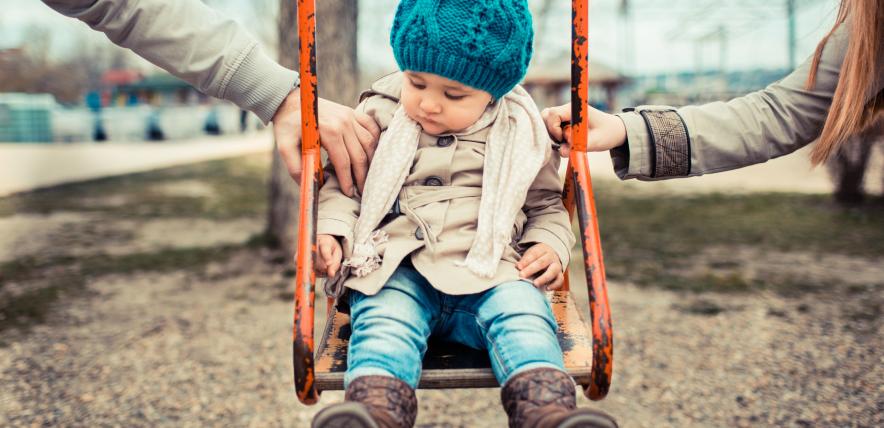Small children may be dismissed by adults as too young to understand something as grown up and complicated as divorce. While it is true that the actual meaning of the word may be beyond their comprehension, they will certainly feel the effects. It is important to offer your child an explanation that is appropriate for their level of understanding and it’s always worth taking a little time to prepare yourself for how you will break the news.
When and where?
Choose a time when your child is likely to be calm and settled, and you have no reason to be apart from them for a few hours afterwards - avoid bedtime, or a morning before you are going to work. A secure and neutral place at home is best.
How much warning should I give?
Young children live very much in the moment. Do not mention the separation until it is definite, and when it is, it might make sense not to tell your child until the moving out date of one parent is imminent. The concept of ‘in a few weeks’ is not one they can relate to. A week beforehand is plenty of warning for young children, with a reminder a day or two before.
Who?
Unless it is totally unrealistic for both parents to be in the same place for a few minutes, it is extremely important to talk your child through the situation together. This ensures that you will be delivering a consistent message and demonstrates in a very clear and immediate way that you mean that you will both still love and take care of your child.
Keep it simple
Until the age of around five, children see themselves very much at the centre of the universe, and as such you should make sure you approach the explanation for your split from their perspective. Your child only needs to know the basic facts. Even though the divorce is obviously about you and your partner, only tell your child the parts of the story that are relevant to them. Decide with your partner how you plan to co-parent post separation so that you can be clear about the future when you explain the divorce to your child.
Key points to convey
We have decided they will be happier living in separate houses.
We both love you very much and will both look after you.
It is not your fault. (Reiterate this point)
You will still see both of us frequently.
We are still a family but in a new way.
We will all feel a bit said about this to start with, but everyone will feel okay again soon.
Help your child adapt
If possible, visit the departing parent’s new home and show your child their new bedroom a day or two before the first time they stay over, to give them a chance to adjust.
Your child may well have a lot of questions following your split. It helps to keep reiterating the same reassurances, and to ensure you and your ex-partner have a consistent message.
It goes without saying that parents should not apportion blame to each other and must ensure that children understand it is not their fault.
It is important to protect your child from the fallout of your separation, as being exposed to conflict can be very upsetting for them, causing confusion, fear and anxiety. Even though the words may go over their heads, they will pick up your distress if you are having heated conversations on the phone, for example.
What next?
Your child may adjust easily to the new family dynamic or may show distress by regressing or acting up. Being present and engaged with your child is the best support you can give. Cuddles, play and familiar routines are the main things that will communicate love and reassurance to a young child, and the more time spent with you, the more opportunity they’ll have to communicate how they’re feeling. Even though you are parenting separately, try to ensure that both parents continue with old routines and jointly establish new ones as appropriate.
If your child attends an early years setting, it is important to make their key person aware. This will be a big change for your child so by informing their setting they too will be able to ensure they can provide support to your child.
Continue to be vigilant in preventing your child from exposure to any conflict and keep promises regarding time with each parent. Continue to be demonstrative towards your child and keep dialogue open about how everyone feels. In this way, you should all be able to move forward with minimal distress to the child involved.
Resources for support through divorce:
Written for the Early Years Alliance by Martha Hales.







